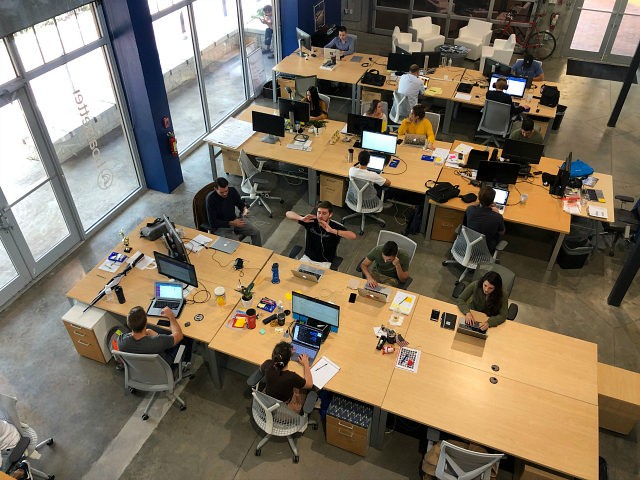Only 11 percent of companies expect all of their employees to return to the office as they once did before the coronavirus pandemic, according to a survey by the National Association for Business Economics.
About 65 percent of companies have allowed “most” or “all” of their employees to work from home during the pandemic, and about half of respondents said they plan to continue to do so until halfway through the year, according to a report by NBC News.
“For the most part, companies that are able to provide work-from-home are doing so and are continuing to do so,” said Andrew Challenger of Gray & Christmas.
Challenger added that his conversations with human resource personnel suggested a reluctance to mandate a return to the office while the virus is still in circulation.
“A lot of people are trying to figure out what’s the best balancing act,” said Melissa White, HR knowledge adviser at the Society for Human Resource Management. “It’s been going on for a lot longer than anyone anticipated.”
White added that considering people have already been out of the office for nearly a year, some have adapted to — and even prefer — this as the new normal.
“Now employees may be super-comfortable where they’re at, or they may be over it and ready to be back in the office,” said White.
A few companies in the tech industry have already prepared for the likelihood that their workers will be reluctant to return to the office, as Facebook and Twitter have announced they will let their employees work from home indefinitely.
Meanwhile, Google’s parent company Alphabet announced that it will let Google employees work from home until September, before moving to a hybrid model.
“Most people miss the in-person interactions, and I think that’s a common sentiment,” he said, mentioning that when Glassdoor surveyed its staff members, it found that 70 percent preferred a mixture of working from home, and from the office.
Challenger predicts that the concerns of working away from the office — as well as how to deal with performance issues remotely — will make companies eager to get their employees back to the office, at least part-time.
“The breakdown of those social bonds in the workplace, I think, makes jobs a lot more disposable to a lot of people,” said Challenger.
“You spend more of your waking hours with your colleagues than you do with your family,” he added. “I think a lot of people are ready to go back to the office once it’s safe.”
You can follow Alana Mastrangelo on Facebook and Twitter at @ARmastrangelo, and on Instagram.

COMMENTS
Please let us know if you're having issues with commenting.